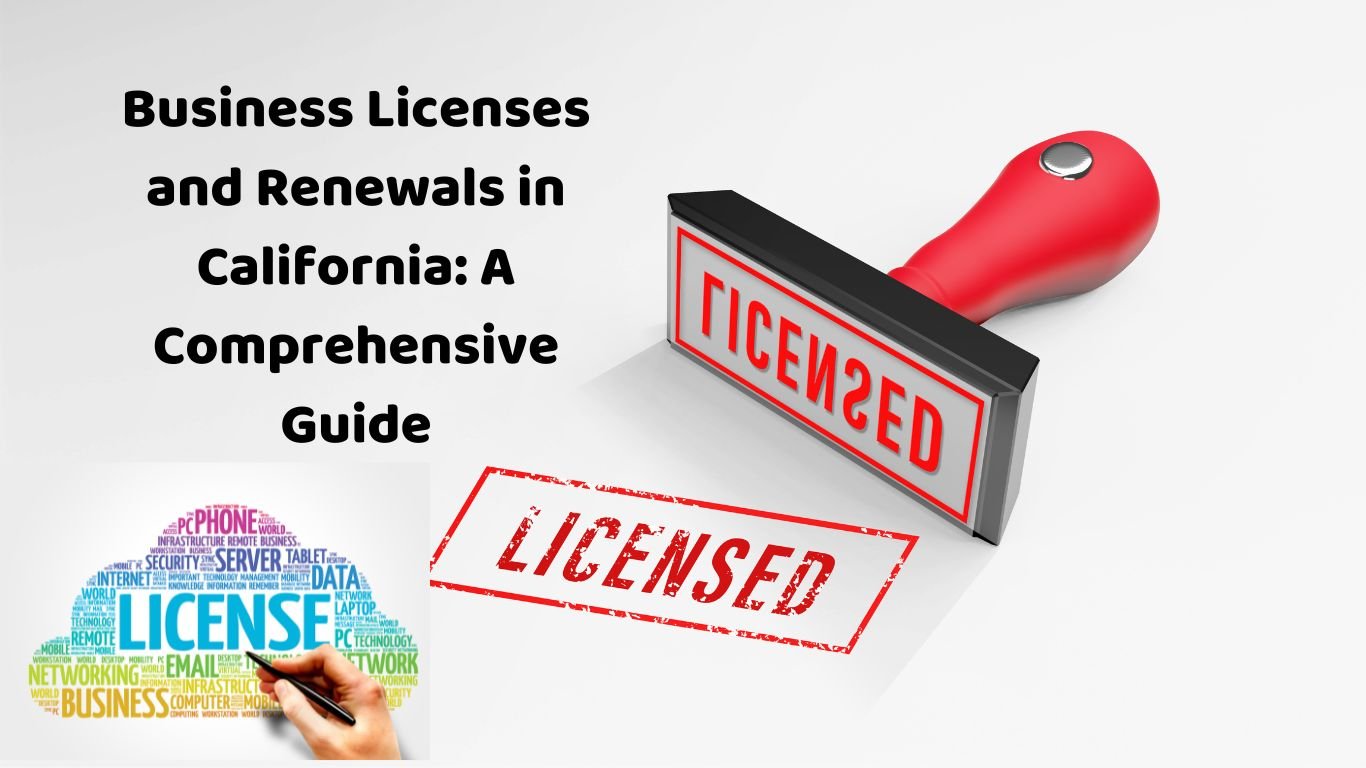Business Licenses and Renewals in California: A Comprehensive Guide
Table of Contents
Understanding the Importance of a Business License in California
Obtaining a business license in California is a fundamental step for any entrepreneur or established business owner. This essential requirement ensures that your business is operating legally within the state’s regulatory framework. Compliance with local, state, and federal regulations is not just a formality; it is a critical aspect of maintaining the legitimacy and integrity of your business.
One of the primary reasons for securing a business license is to meet legal requirements. In California, operating without a license can result in substantial fines, penalties, and even the potential shutdown of your business. These legal repercussions can be financially draining and can severely damage your business’s reputation. By obtaining the necessary licenses, you are proactively safeguarding your business from such adverse outcomes.
A business license also serves as a form of protection for business owners. It acts as a verification of your business’s legitimacy, which can be crucial when establishing relationships with suppliers, clients, and partners. This verification reassures stakeholders that your business adheres to regulatory standards, fostering trust and credibility. Furthermore, a licensed business is often eligible for various government benefits, grants, and financial assistance programs that are not available to unlicensed entities.
From a customer perspective, a business license instills confidence and trust. Consumers are increasingly cautious about whom they do business with, and a licensed operation signals that your business is committed to maintaining high standards of quality and ethics. This can be a decisive factor for potential customers when choosing between your business and a competitor.
Operating without a business license carries significant risks. Beyond the legal consequences, unlicensed businesses may struggle to gain the trust of consumers and partners, which can stifle growth and sustainability. Therefore, securing a business license is not merely a bureaucratic hurdle but an investment in the long-term success and credibility of your business in California.
Types of Business Licenses in California
In California, obtaining the appropriate business license is a fundamental step for legal compliance and operational success. The state offers a variety of licenses tailored to different business activities, ensuring that enterprises operate within regulatory frameworks. Understanding the types of business licenses available is crucial for new and existing businesses alike.
Firstly, a general business license is required for most businesses. This license is typically issued by the city or county where the business operates. For instance, a retail shop, a restaurant, or a small consulting firm would need a general business license from their local municipality. The criteria for obtaining this license often include basic business details such as the name, address, and type of business activity.
In addition to general licenses, professional licenses are mandatory for certain occupations that require specialized knowledge and skills. Professions such as medical practitioners, legal professionals, accountants, and real estate agents must obtain specific licenses from respective state boards or commissions. These licenses ensure that professionals meet the necessary qualifications and adhere to industry standards.
Moreover, California mandates industry-specific permits for businesses engaged in specialized activities. For example, a construction company must secure a contractor’s license, while a food establishment needs health permits from local health departments. Similarly, businesses involved in alcohol sales must obtain permits from the California Department of Alcoholic Beverage Control.
It’s important to note the distinction between local and state licensing requirements. While some licenses are issued by local governments, others require approval from state agencies. Businesses must ensure compliance with both levels of regulation to avoid legal complications. For example, a cosmetology salon needs a state-issued license from the California Board of Barbering and Cosmetology, along with a local business license.
Understanding the nuances of business licenses in California is essential for lawful and efficient business operations. By obtaining the right type of license, businesses can ensure they are prepared to meet regulatory requirements and serve their customers effectively.
Steps to Obtaining a Business License in California
Securing a business license in California involves a detailed, multi-step process designed to ensure compliance with state and local regulations. The initial step is to research the specific requirements for your business location and type. Each city or county in California may have unique stipulations, so it’s crucial to consult local government websites or contact their offices directly for accurate information.
Once you have a clear understanding of the local requirements, the next step is to gather the necessary documents. Typical documentation includes your business name registration, federal and state tax identification numbers, and any applicable professional licenses. Some jurisdictions may also require zoning clearances, health permits, or other specialized documentation, depending on the nature of your business.
With your documents in order, you can proceed to complete the business license application form. These forms are usually available on the website of the city or county where your business will operate. Ensure that all information provided is accurate and complete to avoid any delays in processing your application. Double-check details such as business address, contact information, and the description of business activities.
The final step is to submit your application to the appropriate agency. This can often be done online, but some jurisdictions may require you to mail in or hand-deliver your application. Be prepared to pay any required fees at the time of submission. Keeping a copy of your submitted application and payment receipt is also advisable for your records.
To avoid common pitfalls, ensure you stay updated on renewal dates and fee schedules to maintain compliance. Utilizing resources such as the California Governor’s Office of Business and Economic Development (GO-Biz) can provide valuable assistance and guidance throughout the process.
Costs Associated with Business Licenses in California
When establishing a business in California, understanding the costs associated with obtaining the requisite licenses is crucial. These costs can vary widely, influenced by factors such as the type of business, its location, and the projected revenue. Business owners must be prepared for a multifaceted fee structure that encompasses not only the initial licensing fees but also potential additional expenses.
The primary cost for a business license in California generally ranges from $50 to $100. However, this is not a one-size-fits-all scenario. For instance, a small retail store in a rural area might incur lower fees compared to a restaurant in a bustling urban center. This variability underscores the importance of researching specific local requirements.
Moreover, certain business types may require additional permits or licenses, which can further increase the overall costs. For example, businesses involved in food preparation and sale must secure health department inspections and permits. These inspections ensure compliance with health and safety regulations and typically range from $100 to $1,000, depending on the complexity of the operation.
Another potential additional cost is related to zoning permits. Businesses operating in certain locations must adhere to local zoning laws, which can necessitate acquiring special permits. These permits can cost anywhere from $200 to $5,000, based on the nature and size of the business and the specific zoning requirements of the locality.
Revenue also plays a crucial role in determining the cost of business licenses. Some California cities and counties calculate fees based on the business’s expected annual revenue. For instance, a city might impose a sliding scale where businesses earning less than $100,000 annually pay a lower fee, while those with higher revenues face steeper costs.
Therefore, it’s imperative for business owners to conduct thorough research and budget accordingly. By understanding the various components of the fee structure, entrepreneurs can better prepare for the financial commitments involved in obtaining and maintaining a business license in California.
Maintaining Compliance with Your Business License
Obtaining a business license in California is a critical step for any business, but maintaining compliance with the license requirements is equally important. Holding a business license obligates business owners to adhere to a variety of local, state, and federal laws. This includes regularly reporting any changes in business operations, such as alterations in ownership, business location, or services provided. It is essential to keep the licensing authority updated with accurate and current information to avoid penalties.
Accurate record-keeping is another crucial aspect of maintaining compliance. Businesses must keep detailed records of their financial transactions, employee information, and operational activities. These records are not only necessary for tax purposes but also for any inspections or audits that may be conducted by regulatory bodies. Inaccurate or incomplete records can result in fines and other legal repercussions.
Staying informed about regulatory changes is vital for compliance. Regulatory requirements can evolve, and it’s the responsibility of the business owner to stay updated with any changes that may impact their business operations. This can be achieved by regularly reviewing updates from regulatory agencies, subscribing to industry newsletters, and attending relevant workshops or seminars.
Non-compliance with business license requirements can have significant consequences for a business. Penalties for non-compliance can range from fines and fees to the suspension or revocation of the business license. In severe cases, non-compliance can lead to legal action, which can be costly and time-consuming. These consequences can disrupt business operations, damage the business’s reputation, and impact its financial stability.
Therefore, it is paramount for business owners in California to diligently maintain compliance with their business license requirements. By staying informed, keeping accurate records, and promptly reporting any changes in business operations, businesses can ensure they remain in good standing with regulatory authorities and avoid the potential pitfalls of non-compliance.
Business License Renewal Process in California
Renewing a business license in California is a critical task that ensures your business remains compliant with state regulations. The renewal process generally occurs annually, though specific timelines can vary depending on the type of business and local jurisdiction. It is essential to be aware of the renewal schedule to avoid any interruptions in your business operations.
To initiate the renewal, you will need to gather and submit several key documents. Typically, these include the original business license, proof of compliance with local zoning laws, and any necessary tax documentation. It’s advisable to check with your local city or county office to confirm the exact requirements, as they can differ across jurisdictions.
Submission of renewal applications is often done through local government websites, providing a convenient and efficient method. Most jurisdictions also offer in-person submission options for those who prefer a traditional approach. The submission deadlines are usually set well in advance, often 30 to 60 days before the expiration date of the current license. Missing this deadline can result in penalties, including fines and potential suspension of business activities.
To ensure a seamless renewal process, follow these steps:
1. Mark your calendar with renewal dates and deadlines.
2. Gather all required documentation, such as your current business license and tax records.
3. Complete any necessary forms, which are typically available on your local government website.
4. Submit your renewal application and pay any associated fees.
5. Confirm receipt of your renewal application and keep a copy of the submission for your records.
Timely compliance is crucial, as failing to renew your business license on time can lead to significant consequences. Penalties for late renewals often include monetary fines, and in severe cases, your business operations may be suspended until the renewal is processed. Maintaining an up-to-date business license not only keeps you in good standing with state regulations but also helps to build trust with your customers and stakeholders.
Common Challenges and How to Overcome Them
Obtaining and renewing a business license in California can present several challenges for business owners. One of the most frequently encountered issues is dealing with bureaucratic delays. These delays can be particularly frustrating, especially when they hinder the commencement or continuation of business operations. To mitigate this, business owners can take proactive steps such as submitting applications well in advance of deadlines and maintaining open lines of communication with regulatory agencies. Additionally, seeking the assistance of professional licensing consultants can expedite the process, thereby minimizing downtime.
Another significant challenge lies in understanding the complex regulations that govern business licenses in California. The state has a myriad of regulations that vary not only by industry but also by locality. This complexity can often lead to confusion and potential non-compliance. To navigate this, business owners should invest time in thorough research and perhaps seek legal counsel to ensure full compliance with all applicable laws. Online resources and local business associations can also provide valuable guidance and updates on regulatory changes.
Managing costs associated with licensing is another hurdle that business owners frequently face. The fees for obtaining and renewing licenses can be substantial, especially for small businesses. Budgeting for these expenses well in advance can alleviate financial strain. Additionally, some local governments offer fee waivers or reductions for small businesses or startups, so it is worthwhile to inquire about such programs. Leveraging these financial aids can significantly ease the burden on business finances.
Success stories abound of businesses that have effectively navigated these challenges. For instance, a San Francisco-based tech startup managed to expedite its licensing process by hiring a specialized consultant who had in-depth knowledge of the local regulatory landscape. Moreover, a Los Angeles restaurant successfully minimized costs by applying for a small business fee waiver, which allowed them to allocate funds towards growth and development rather than administrative fees.
By understanding these common challenges and implementing strategic solutions, business owners can more effectively manage the process of obtaining and renewing their business licenses in California, ensuring smoother operations and compliance.
Resources and Support for California Business Owners
California offers a wealth of resources to assist business owners in navigating the complexities of obtaining and renewing business licenses. Government websites serve as a primary source of information. The California Governor’s Office of Business and Economic Development (GO-Biz) provides a comprehensive database of permit and license information. Similarly, the California Secretary of State’s website outlines the necessary steps for business registration and compliance.
Local chambers of commerce are invaluable for networking and staying informed about local business conditions. Organizations such as the California Chamber of Commerce offer resources, advocacy, and educational events tailored to business owners. Additionally, many cities and counties have their own chambers of commerce that provide specific guidance and support relevant to their jurisdictions.
Business consultants and legal advisors play a crucial role in helping entrepreneurs understand the legal and procedural aspects of business licensing. Professional services, including those offered by firms like Nolo and LegalZoom, can provide personalized advice and assistance with documentation, ensuring compliance with state and local regulations. For those seeking more personalized consulting, organizations like the Small Business Development Centers (SBDCs) offer free consulting services to help with licensing and other business operations.
Workshops and seminars are also excellent ways to stay updated on licensing requirements and best practices. The California SBDC network regularly hosts events focused on various aspects of business management, including licensing. These workshops provide opportunities for direct interaction with experts and peers, fostering a collaborative learning environment.
Access to the right forms and documents is crucial for compliance. Websites like California Department of Tax and Fee Administration (CDTFA) offer downloadable forms and instructions for business licenses and permits. Ensuring that all forms are accurately completed and submitted on time is a vital step in maintaining a compliant business operation.
By leveraging these resources, California business owners can navigate the complex landscape of business licensing with greater ease and confidence, ensuring their ventures remain compliant and successful.








2 Comments